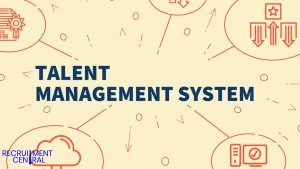In the realm of modern recruitment, identifying the right candidate with the necessary skills is a crucial task. This article delves into the world of skills assessment and testing in recruitment, exploring how these tools have transformed the hiring landscape. By examining the benefits, strategies, and best practices, this article aims to shed light on how organizations can effectively leverage skills assessment to make informed and successful hiring decisions.
Skills Assessment and Testing in Recruitment: A Comprehensive Overview
The Evolution of Recruitment
Traditional hiring methods often relied on resumes and interviews, leaving gaps in evaluating candidates’ practical skills.
The Power of Skills Assessment
- Objective Evaluation: Skills assessment provides an unbiased measure of candidates’ abilities, beyond what is listed on their resumes.
- Streamlined Process: Assessments enable efficient screening of candidates, saving time and resources during the initial stages.
- Data-Driven Decision Making: Assessment results offer data-backed insights to inform hiring decisions.
The Impact of Skills Assessment on Recruitment Strategy
Improving Candidate Evaluation
Skills assessment empowers recruiters to evaluate candidates based on their actual competencies, reducing the risk of misaligned hires.
Enhancing Hiring Accuracy
Assessment results aid in identifying candidates who possess the required skills and are more likely to excel in the role.
Promoting Diversity and Inclusion
Skills assessment helps minimize unconscious bias by focusing on candidates’ abilities rather than subjective criteria.
Implementing Effective Skills Assessment: Key Considerations
Defining Skill Requirements
Clear identification of the skills needed for the role is essential for creating relevant assessment tests.
Choosing Assessment Methods
Various methods, such as technical tests, situational judgment tests, and case studies, can be employed based on the nature of the job.
Ensuring Fairness and Consistency
Creating standardized assessment processes ensures fairness and consistency for all candidates.
The Role of Skills Assessment in Modern Hiring
Bridging the Skills Gap
Skills assessment assists in identifying candidates who possess the specific skills required to address skill gaps within the organization.
Improving Onboarding
Hiring candidates with verified skills enhances the onboarding process, reducing the time needed for training.
Enhancing Employer Branding
Employers known for fair and accurate assessment processes attract top talent and foster a positive employer brand.
Success Stories: The Impact of Skills Assessment
Company A: Boosting Performance Metrics
After implementing skills assessment, Company A experienced a 25% improvement in employee performance and efficiency.
Company B: Reducing Turnover
By employing skills assessment, Company B reduced turnover rates by 20% due to improved role-fit hires.
Expert Insights
“Skills assessment adds a layer of objectivity to the recruitment process, helping companies hire candidates who can hit the ground running.” – Sarah Johnson, Recruitment Strategist.
How Skills Assessment Tools Assist in Recruitment
- Efficient Screening: Skills assessment tools efficiently filter out candidates who lack the required competencies, streamlining the shortlisting process.
- Objective Evaluation: These tools provide an unbiased evaluation of candidates’ skills, eliminating subjective judgments.
- Data-Driven Insights: Assessment results offer valuable data for recruiters to make informed hiring decisions.
Maximizing the Benefits of Skills Assessment
Continuous Improvement
Regularly refining assessment methods based on feedback and outcomes ensures optimal results.
Collaboration with Hiring Managers
Close collaboration between recruiters and hiring managers ensures alignment on skill requirements and assessment criteria.
Recruitment Central’s Talent Acquisition Platform: Sourcing the Right People is Key to Building Strong Teams
Our strength lies in helping organizations navigate the intricate process of talent acquisition. Since 2003, we have partnered with clients to recruit the best candidates, ensuring that teams are built on a foundation of excellence.
Conclusion
In the dynamic landscape of recruitment, skills assessment and testing have emerged as indispensable tools. By focusing on objective evaluation and data-driven insights, organizations can harness the power of skills assessment to make informed hiring decisions, bridge skill gaps, and enhance the overall recruitment process.
Frequently Asked Questions
Ques 1. Can skills assessment be customized for different job roles?
Ans 1. Yes, skills assessments can be tailored to match the specific skill requirements of different job roles.
Ques 2. Are skills assessment tools suitable for all industries?
Ans 2. Yes, skills assessment tools can be adapted for various industries and job functions to assess relevant competencies.
Ques 3. How can skills assessment contribute to employee retention?
Ans 3. Skills assessment ensures that candidates possess the required skills, leading to better role-fit hires and, consequently, improved employee retention.
Ques 4. Can skills assessment tools be used for remote hiring?
Ans 4. Yes, skills assessment tools can be utilized for remote hiring, allowing employers to evaluate candidates regardless of their location.
Ques 5. What is the role of soft skills assessment in the recruitment process?
Ans 5. Soft skills assessment complements technical assessments by evaluating candidates’ communication, teamwork, and problem-solving abilities.
Ques 6. How can organizations prevent cheating or dishonesty during online skills assessments?
Ans 6. Organizations can implement proctoring solutions and secure platforms to ensure the integrity of online skills assessments.







